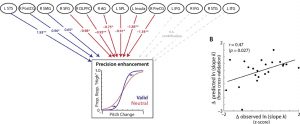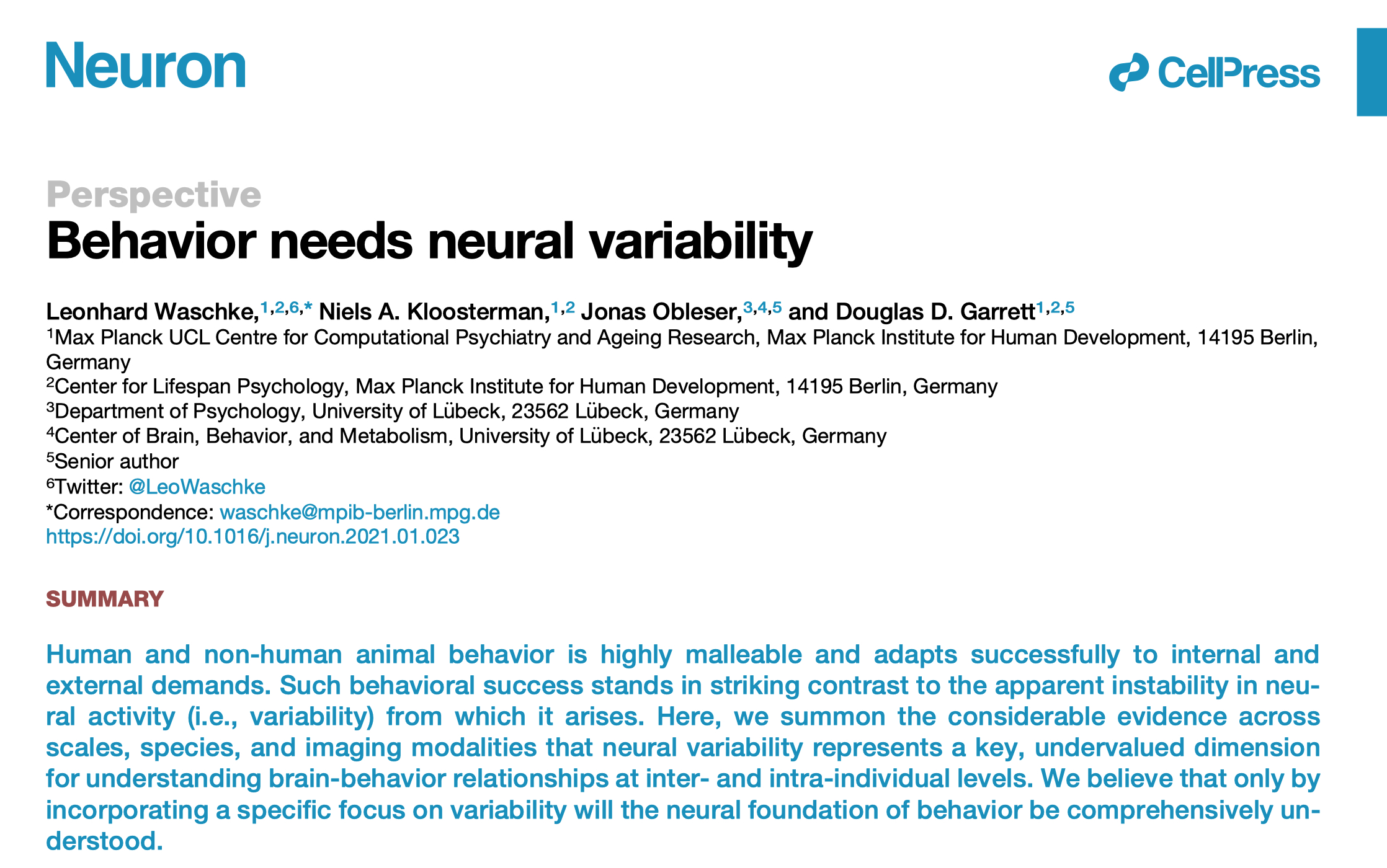Our two senior researchers, Sarah Tune and Malte Wöstmann, are happy to each announce the opening of a three-year PhD position in the Obleser lab. The positions are part of two recently funded DFG grants, and will feature really exciting combinations of behaviour modelling and neural dynamics!
Sarah’s project will look into how perceptual inference changes with age, using speech perception as a model system. It will bring together behavioural speech perception experiments and functional neuroimaging, and apply computational modelling to link between the two.
For full details, see the official job ad.
Malte’s project will focus on auditory attention and its neural bases. It will combine behavioural and electroencephalography (EEG) data in younger and older adults to investigate the neuro-cognitive mechanisms underlying capture of attention and suppression of distraction.
For full details, see the official job ad.
The application deadline (as single PDF to the email address named in the ad!) is Nov 19, 2023!
Please don’t hesitate to contact Sarah or Malte if you have any informal questions about PhD positions and projects. Sarah will also be at APAN and SfN soon, if you feel like chatting with her about the position.
We are looking forward to many interesting applications!





